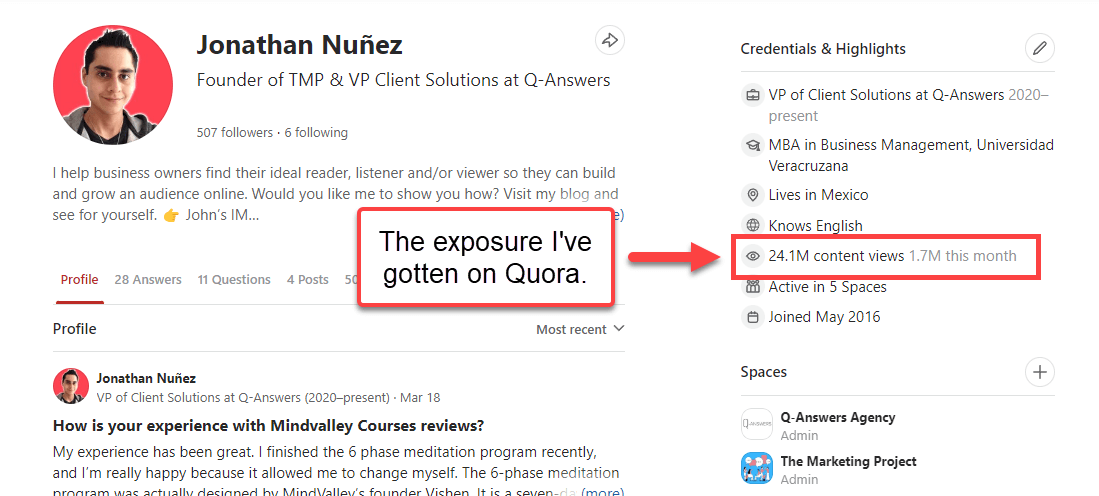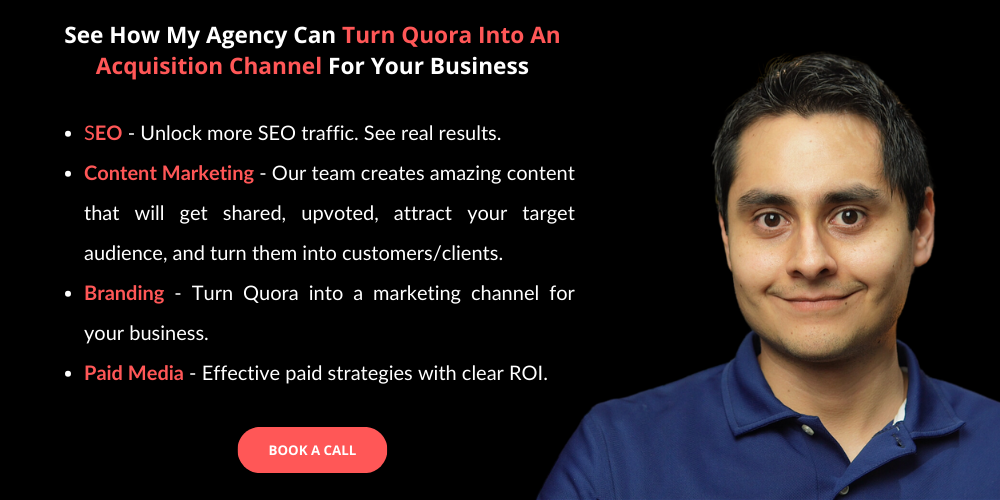Quora is a popular online platform for asking and answering questions. And because of this, it has become an invaluable source of information for many people, but it’s important to use Quora safely and responsibly.
So, how do we do that?
In this article, we’ll explore the safety features Quora has and how to use the platform effectively. We’ll also discuss potential risks associated with using Quora, such as data security issues and malicious content.
With this information, you can make an informed decision about whether or not to use Quora for your own needs.
Let’s get started.
More...
What is Quora?
Quora is an online platform that allows users to ask questions. Users then get notifications based on the topics they know so they can provide answers. Quora thrives in collective knowledge.
It is a great platform for marketing, as it allows companies to interact with customers and prospects more deeply than in other social platforms.
It also provides valuable insights into what people are thinking, allowing companies to better target their marketing efforts.
Quora (and other Q&A platforms like it) is an invaluable tool for any company looking to get more exposure, nurture prospects, get more leads, and make more sales.
I’ve been using Quora for promoting products and services for over four years and it’s proven to be an amazing marketing channel. I highly recommend it.

Is Quora safe?
Yes, Quora is generally safe to use. Quora takes proactive measures to ensure the content posted on the site follows its guidelines.
Having said that, Quora –just like any other platform– can be misused, so we need to consider some things. Here are some of them:
How to use Quora safely
It’s important to be aware of potential issues and take the necessary precautions when using the platform. For example, here are some things you’ll want to do:
1) Don’t Share Personal Information
Avoid sharing personal information you don’t want others to know on comments and Quora answers. Sharing this data will make it easy for people with bad intentions to target you.
This also applies to your bio, avoid sharing too much information on your profile. Only include what you want people to see.
2) Avoid Doxing Yourself
Avoid uploading personal pictures where you can see where you live. People who want to get that information can do so from very little details like those so make sure you never post that type of content.
3) Use A Strong Password
Use a strong password when creating your account. I mean, a password that’s about 15-20 characters long, uses capital and lowercase letters, numbers, and symbols just like this one: G^$I4eISeb56cqF%zf0t
4) Set Up Email Verification
Under settings, there’s an option called “Login security” that makes it so you have to verify it’s you when it detects a login from a new location.
5) Don’t Click Links Without Verification
Avoid clicking links before you see where they will take you. Hover your mouse over the link and at the bottom left side of your screen, you’ll see the link you are about to click. Make sure it’s the site you want to visit.

This won’t be possible if you are using Quora on a mobile device so be careful with the links you choose to click.
6) Take Everything You Read With A Grain Of Salt
Literally anyone with an account can reply to questions on Quora, so even though most people have the best intentions, it doesn’t mean everything you read is true (especially opinions).
Always fact check the information you read and ask for sources. There’s a comment section for that on each answer.
Our Final Thoughts:
Quora is a great platform for marketing, as it allows companies to interact with prospects and customers more deeply than in other social platforms.
And because of this, Quora is generally safe to use. But users can take additional steps to protect themselves from potential risks.
For example, use a strong password and set up email verification when creating your account, take everything you read on Quora with a grain of salt, and always fact check the information you read and ask for sources.
Doing this will ensure you have a wonderful experience.

